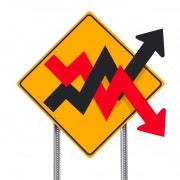Emerging markets ready to outperform Wall Street
PORTFOLIO POINT: Emerging markets have underperformed as global growth has slowed, but that is set to change this year.
Slower emerging market growth has been more surprising than that in the US and Europe, where expectations were already low.
Investors have shown little faith in emerging market policy easing thus far, shrugging off recent rate cuts in China, Korea, and Brazil. On the other side of the trade, I think investors are too bullish on the US outlook, and Adam Parker, our US strategist, expects a big earnings miss in 2013.
My preferred trade is emerging market (or Asia ex-Japan) equities over US equities. I prefer to play this as a relative, not absolute trade: slowing global growth and Eurozone stress will likely continue to be a challenge for risk assets globally. European equities are the cheapest in developed markets.
However, the halting progress on the Eurozone crisis leaves the risk-reward for European equities in the middle of the pack, in my view. Japan is on similar multiples to emerging markets, but margins are not improving and the currency is a headwind.
The trade hinges on Chinese policy working – which markets now seem to doubt – while US growth and earnings fall short of forecasts.
China has been slow to ease, but Helen Qiao, our China economist, expects more to come: two more rate cuts are likely, loan growth has ticked up, and infrastructure spending is being brought forward. In contrast, US growth is disappointing, the fiscal cliff looms, and earning forecasts for 2013 seem far too high. This is against a backdrop where investor sentiment strongly favours the US; emerging market equities appear cheap relative to their own history, and relative to US equities. The primary risk is that the policy easing falls short, or that the apparent favourable top-down conditions are offset by ongoing earnings downgrades in Asia.
 Emerging markets versus a US reversal of fortune
Emerging markets versus a US reversal of fortune
I expect emerging market equities to outperform developed markets, specifically the US, over the next year. This is not a call for strong absolute emerging market returns over the rest of this year; slowing global growth and Eurozone stress will likely continue to be a challenge for risk assets globally. Rather, this is a call for emerging market relative outperformance over the US. Such an outcome would reverse the year-to-date performance.

This would also run counter to the current investor allocation that clearly favours US stocks, driven by better-perceived earnings prospects and relative safety. No doubt, European equities are the cheapest in developed markets, and globally for that matter. This is partly why I upgraded them over the US two weeks ago. However, the halting progress on the banking and fiscal union leaves the risk-reward for European equities in the middle of the pack, in our view. Japanese equities appear cheap, but margins are under pressure and the currency is a headwind. Consequently, I believe emerging markets (or Asia ex-Japan) over US is the best relative equity trade.

Several factors point to emerging market outperformance versus the US. First, sentiment and positioning is skewed to underweight emerging markets and overweight US. Second, policy is heading in opposing directions: emerging markets is easing – which we expect will boost growth – while the US faces potential fiscal tightening. Third, earnings trends are likely to cross over. Emerging market earning forecasts have fallen – as warned by Jonathan Garner, our emerging markets strategist – but I expect revisions to inflect higher in coming months. In contrast, Adam Parker, our US strategist, expects material downgrades to 2013 US earning forecasts. Fourth, emerging market equities are cheaper relative to their own history than US equities. Fifth, while emerging market equity beta remains positive, it has been declining over the past several months.

Clearly, betting against beta is a risk, but there have been periods with positive emerging market returns even as US equities sold off. However, there have been several episodes where the emerging market growth and earnings cycle has led developed markets. Emerging market growth began slowing last year, triggering earnings downgrades, even as earnings continued to grow in the US.
Effectively, Jonathan Garner and Adam Parker expect these earning trends to reverse in 2013: improving emerging market, worsening US. My guess is that forward-looking equity markets should start to reflect this shift in relative earnings through the second half of 2012.
Of course, there are risks to this call. The most prominent is that policy easing in emerging markets ' China specifically ' is insufficient to produce a notable growth pick-up. Higher food inflation due to fast rising agriculture commodity prices could slow the policy response. There is also a risk that financial stress elsewhere affects Asia. India is rated as more vulnerable on this count than China.
![]()
*This is an edited version of Cross Asset Strategy from Gerard Minack of Morgan Stanley first published on July 19.













